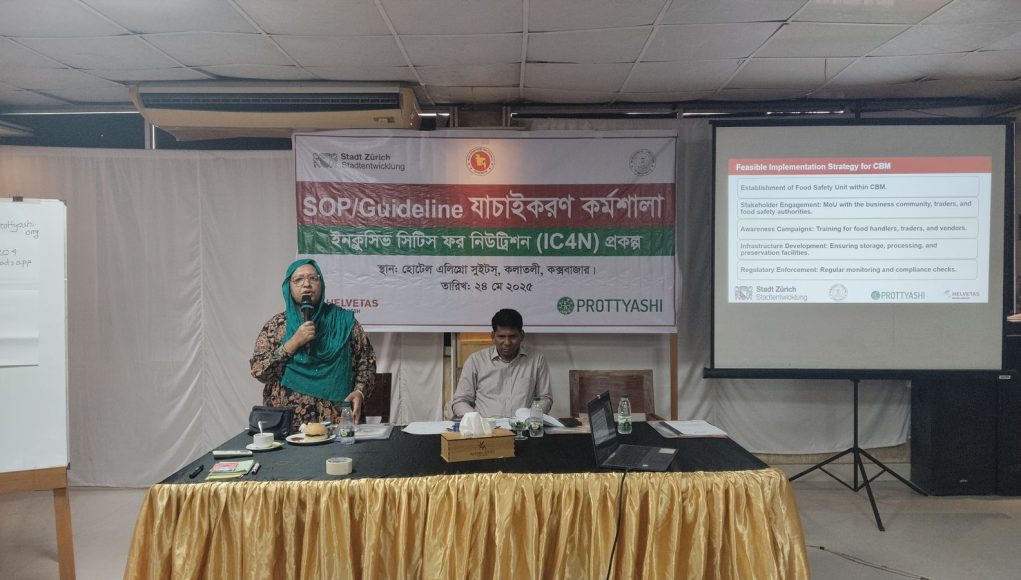In a pioneering move, Cox’s Bazar Municipality has become the first in Bangladesh to develop Standard Operating Procedure (SOP) guidelines for maintaining hygiene standards in handling vegetables, fruits, fish, poultry, and meat.
The guidelines will be implemented across various sectors, including transportation, processing, storage, and distribution, starting in June this year.
The announcement came during a verification workshop held on Saturday (May 24), where officials revealed that the SOPs have already been finalized under the “Inclusive Cities for Nutrition” (IC4N) project, jointly implemented by Prayash and Helvetas on behalf of the municipality.
Shamim Akhtar, Social Development Officer of Cox’s Bazar Municipality, shared that this initiative follows a Memorandum of Understanding (MoU) signed between Cox’s Bazar and Zurich City in Switzerland. “As the first city in Bangladesh to develop such comprehensive SOPs, Cox’s Bazar is setting a precedent. This model could be replicated across other cities in the country,” she added.
Notably, no other city in Bangladesh has previously prepared SOP guidelines for the hygiene standards for vegetables, fruits, fish, poultry, and meat.
Dr. Bimal Kumar Pramanik, Deputy Director of the Department of Agricultural Extension in Cox’s Bazar, praised the initiative during the workshop. “Much like birth registration is essential for every individual, these SOPs are equally crucial for ensuring food safety. It is a matter of pride that Cox’s Bazar is leading the way for the rest of Bangladesh,” he remarked.
Officials from the Department of Agricultural Extension, Bangladesh Food Safety Authority, and Cox’s Bazar Municipality attended the SOP verification workshop, as did representatives from NGOs such as DSK, Podokkhep, and Mukti Cox’s Bazar. Sanitary inspectors and senior officials from Prayash and Helvetas were also present.
This groundbreaking step is expected to enhance food safety, protect public health, and establish Cox’s Bazar as a model for sustainable urban nutrition management.
By Abdur Rashid Manik
Photo: Courtesy










